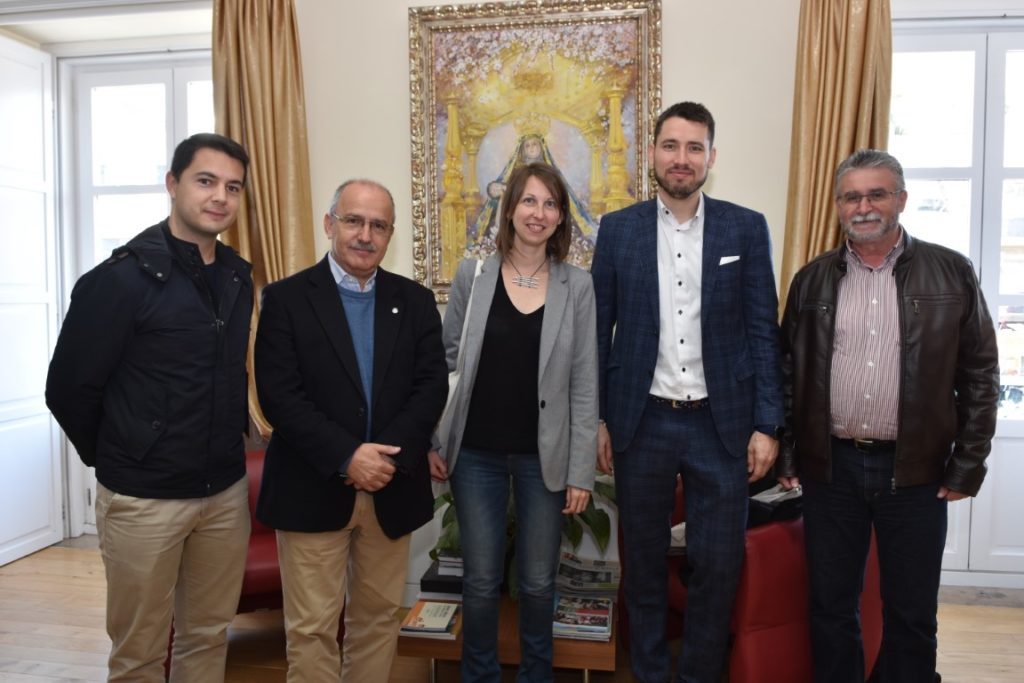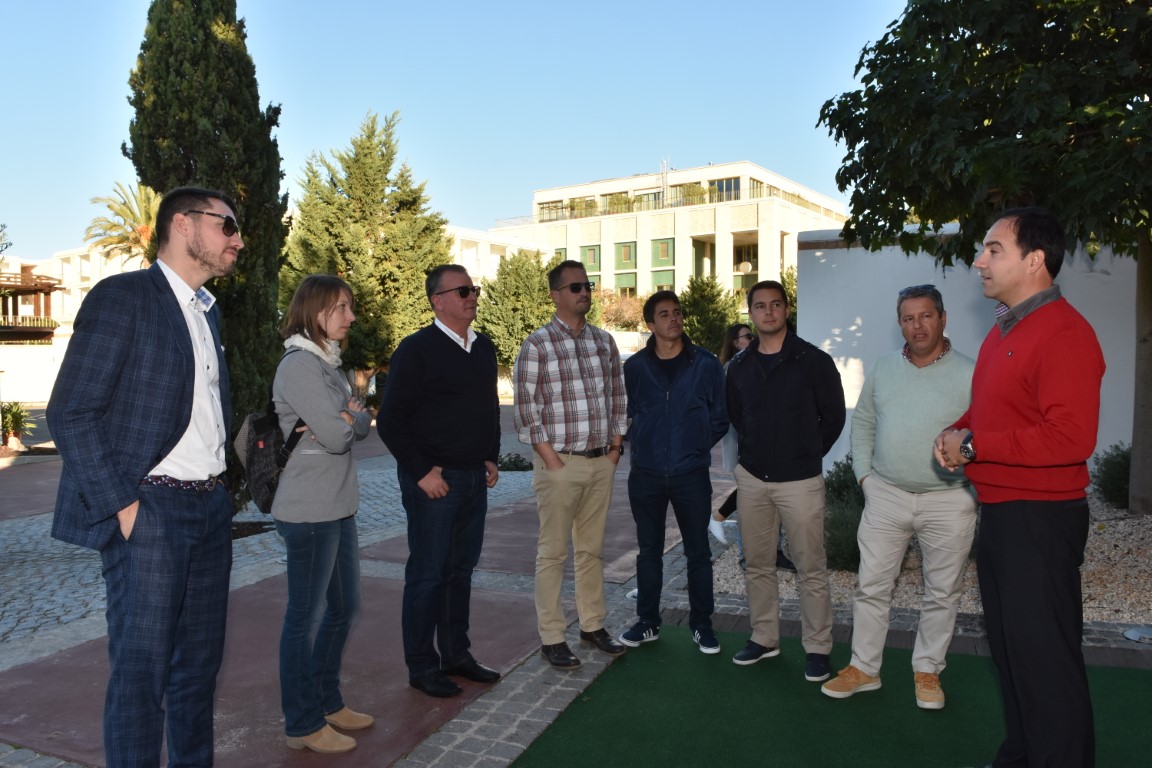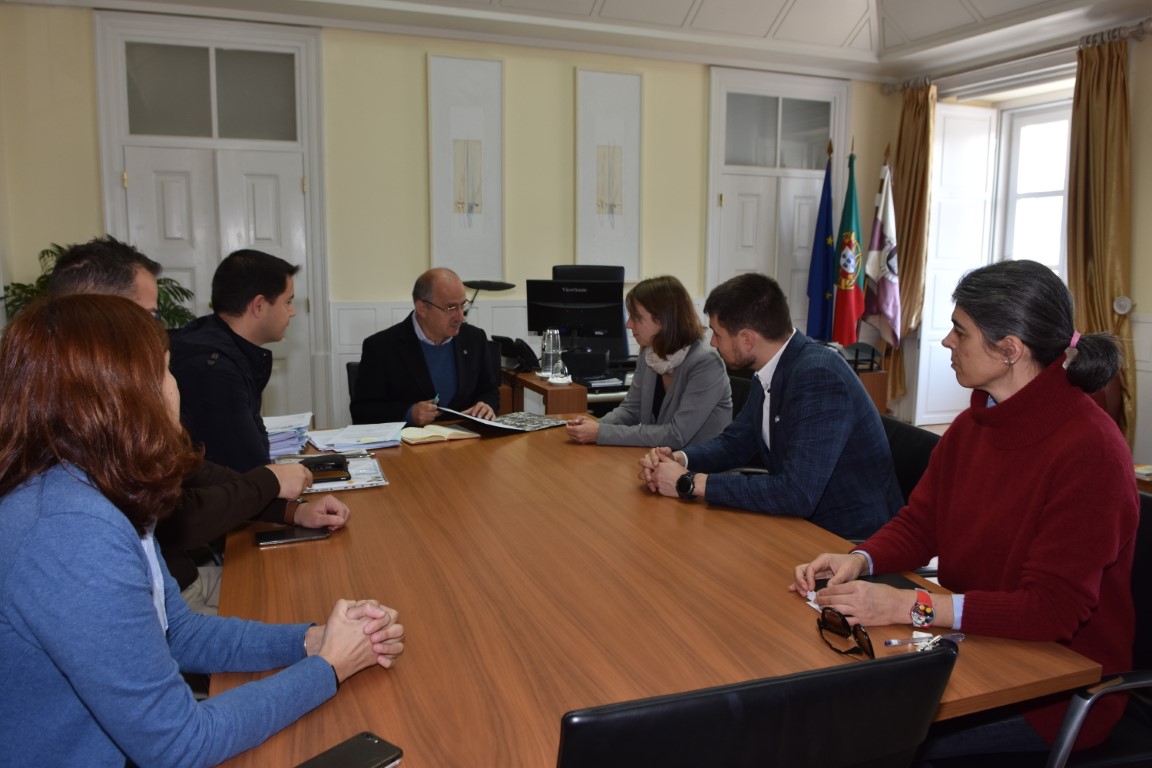Sebastian van Herk, lead expert from the “Healthy Cities” project, and Marta Serra, coordinator of this European network, were, from December 2nd to 4th, in Loulé, where they left satisfied with the work done.
In this tour of the council, the delegation, accompanied by Tiago Guadalupe, local coordinator, was received by Vítor Aleixo, mayor of Loulé, in a welcome session.
The mayor said that this participation in the "Healthy Cities" is part of the same philosophy as the "Vital Cities": "trying that there are many people practicing sports informally, that there is interaction between people, and that the city is prepared to that», he said.
On this visit, the project representatives were able to see up close some of the public spaces in the county, which could be areas for sports practice: Loulé Municipal Park, where the third phase of the rehabilitation project, Praceta JA Pires, is currently underway. requalified and which now integrates a green space with infrastructures geared towards sports, the emblematic Jardim das Comunidade in Almancil, and Avenida Engenheiro João Meireles, in Vilamoura.
In the auditorium of the Municipal Center of Quarteira, Luís Vicente, also coordinator, presented the structure and objectives of the Local Action Plan, as well as the constitution of the group that will work on this document. On the other hand, two of the local associative partners – Clube de Ténis de Loulé and Let's Go Run – presented the initiatives carried out by these clubs in favor of sports dynamics.
At the end of the visit, both international representatives of the network were satisfied with what they saw, underlining the important sporting dynamics existing in the municipality.
«Loulé is very advanced in terms of organizing sporting activities and committed to involving clubs, he is very active in this matter. It can be seen that Loulé has experience in European and international projects, namely in the previous URBACT”, stressed Sebastian van Herk.
However, the lead expert pointed to “urban planning” as the Achilles' heel, even leaving a suggestion: “to look at the city in terms of urban planning and design, creating wider and more orderly streets”.
«It's a shame there are so many cars… They promote sport very well, but a simple physical activity like walking in the city is made more difficult due to the narrow sidewalks, cars everywhere. It's such a beautiful city, even the Historic Center should be car-free. This is a political decision but it would be a good choice to follow this path, to have a transition in that direction», he underlined.
On the part of the network coordinator, it will also be essential to have a greater involvement of the different departments, in an exchange of knowledge between all the organizations that, better than anyone else, know the strengths and weaknesses of the city.
«The challenge is to involve urban planners, architects, the mobility department of the City Council, among others, and gather all the information. This is a strengthening for the city since there is a lot of knowledge within the city that needs to 'explode', considered, in turn, Marta Serra.
Although, for the time being, this project does not undergo any physical work, unlike what happened with the “Vital Cities”, according to Tiago Guadalupe, who remains the coordinator of yet another transnational project, «it is a network of knowledge, exchange of experiences, in which the concern is above all to create a strategic plan that allows us to connect various areas such as the environmental, educational, social action, sport, so that we have a healthy council».
The experience as a leading partner of the “Vital Cities” project could be an added value for participating in the “Healthy Cities”.
“We will try to convey what we think we do well, but we will also learn from our partners because there is certainly a lot to learn. We believe that, with regard to the challenges that happen at European level, the problems are the same, the way they are faced can be different. There are cities that are experts in the strategic planning of cities, others that are experts in promoting the health of the population through sport, there are several answers that can be given to improve the health of the population, which, in the end, is what the municipalities want» , concluded Tiago Guadalupe.
In these first six months, European officials will visit all the cities involved in the network, but it is expected that, in the next two years, they will return to the Algarve, accompanied by representatives from other cities, to "learn more with Loulé" and see which ones up close. the level of local evolution in this matter.
“There are different cities and they are all very interesting and they all try to approach urban health issues from different points of view. This will greatly enrich all the cities involved», underlined Marta Serra..
Funded by URBACT, “Healthy Cites” is a European program of learning and exchange of experiences in promoting sustainable urban development, which proposes to create a network of cities to deepen the relationship between health and the urban environment, develop policies that put the focus improving the health status of the population, as well as developing a rigorous assessment of the health impact of these policies.
Cities may consider actions from different points of view and through different policies, but the global health perspective will provide a common framework and allow for the development of sharing methodologies.
Vic (Spain), Pärnu (Estonia), Farkadona (Greece), Falerna (Italy), Anyksciai (Lithuania), Malta (Malta), Alphen aan den Rijn (Netherlands) and Bradford (England) are the partner cities of Loulé in this network .
To learn more about this project, just click here





















Comments